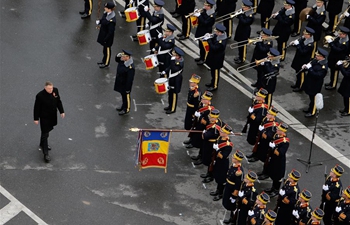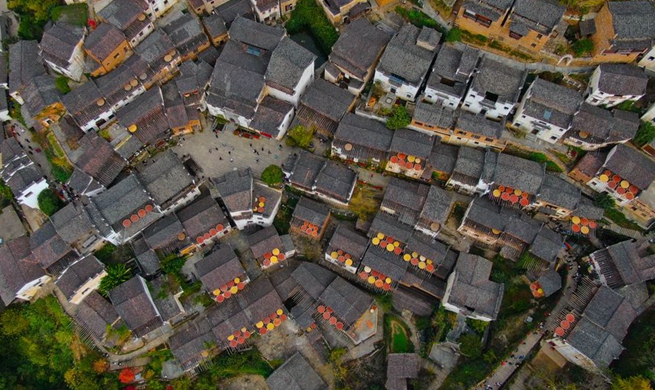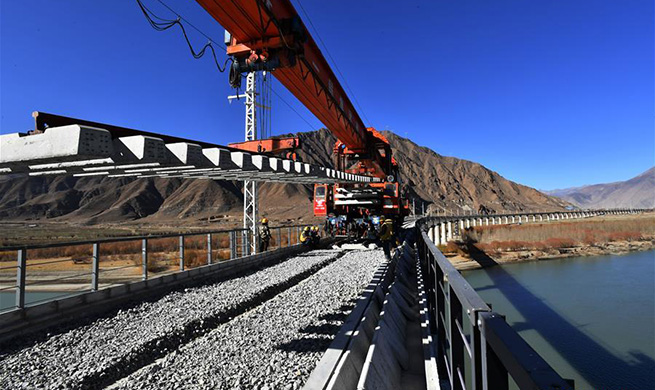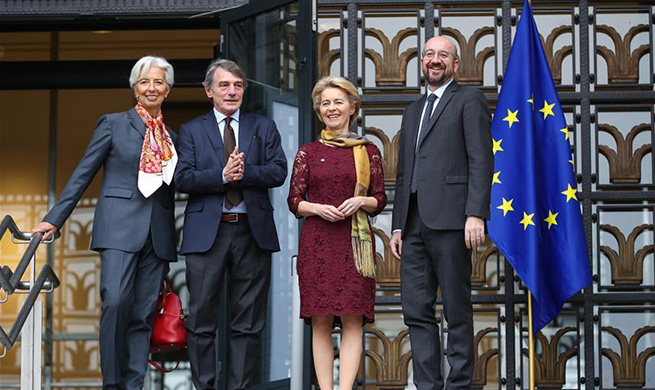BEIRUT, Dec. 2 (Xinhua) -- Lebanese Caretaker Energy and Water Minister Nada Boustani announced Monday that she extended the gasoline tender for one more week to allow more competition, MTV local TV channel reported.
"We got offers from two companies to provide us with gasoline which means that the tender has succeeded but we decided to extend it for one more week to allow more competition," Boustani said during a press conference to give an overview about the latest developments regarding the gasoline crisis in Lebanon.
Lebanon has been witnessing in the past few days a shortage in gasoline due to an open strike announced by gas stations on Wednesday because they have been incurring huge losses caused by the increase of the price of the U.S. currency to the Lebanese pounds.
Gas stations are buying fuel from oil importing companies by paying in U.S. dollars while they are selling it to clients in Lebanese pounds. Meanwhile, gas station owners need the dollars because they pay their suppliers with the U.S. currency.
This has prompted Boustani to announce earlier this month that the government will start importing part of the fuel oil consumed in Lebanon which will enable the ministry to supply gas stations with gasoline using the Lebanese currency, a solution that would partly relieve gas stations owners and consumers.
"The government will start importing fuel since oil importing companies are no longer capable of satisfying the local market's needs. They cannot secure enough dollars to import the needed volume of the commodity," Boustani said.
Boustani also succeeded in ending the gas stations' strike by reaching an agreement that would allow gas station owners to split their losses with oil importing companies and distributors until the U.S. dollar crisis is over.
This has prompted Fadi Abou Chakra, a member of the Syndicate of Gas Station Owners, to announce on Monday that gas stations will open again to supply consumers with gasoline.
Lebanon has been facing shortage in U.S. dollar currency due to economic slowdown and the drop in cash injections from Lebanese abroad which have reduced the central bank's foreign currency reserves.
The demand for dollar has created a parallel market in which the dollar is selling on the black market at 2,100 Lebanese pounds which is higher than the official exchange rate.
As a result, importers of some basic products such as fuel, medicine and wheat, could not secure enough U.S. dollar at the regular exchange rate to pay for their imports.
Importers of basic commodities will have to pay a higher price for their imports if they succeed in securing their U.S. dollar needs from currency exchange companies.
However, Boustani said that the government will import part of the market's fuel needs which will allow consumers to buy gasoline at regular prices without any prices increase.
"We will continue with our plan no matter what challenges we face," Boustani said.
Lebanon's oil needs were usually secured by oil importing companies only.

















